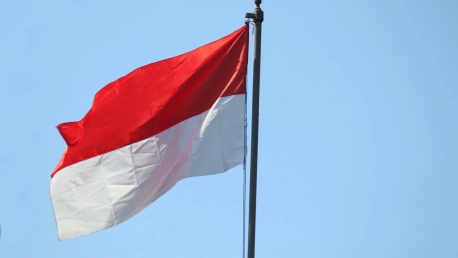Indonesia’s health and medical insurance sector is poised for substantial expansion. Industry experts forecast that from 2024 to 2032, the sector will experience a compound annual growth rate of 4.41%. This growth is attributed to a confluence of factors that are expected to elevate the scope of the industry significantly. A rising awareness of health insurance benefits, increasing healthcare costs, and a growing middle class with more disposable income are key contributors to this expansion. Moreover, government initiatives to improve healthcare infrastructure and extend insurance coverage to wider population segments are also stimulating market growth. Additionally, the adoption of digital technologies in the insurance process, such as online policy management and telemedicine, is enhancing service accessibility and efficiency, further propelling the industry forward. With these combined influences, Indonesia’s health and medical insurance market is set to experience a period of dynamic growth and transformation, making it an area of interest for investors and policy providers alike.
Factors Fueling Market Growth
Government Initiatives Toward Universal Health Coverage
The Indonesian government is taking decisive steps toward ensuring that every citizen has access to healthcare through the implementation of its JKN program. This ambitious plan is a key element in the country’s quest for universal health coverage, signaling a transformative shift toward an all-encompassing health insurance system. As the government steadfastly propels this initiative forward, a larger pool of insured individuals emerges, presenting a significant opportunity for insurance companies to grow their customer base. The JKN program not only underscores Indonesia’s commitment to inclusive healthcare but also stands as a testament to the nation’s dedication to improving the health and well-being of its people. This effort is critical in structuring an equitable health system that is poised to revolutionize the way healthcare services are delivered throughout the diverse Indonesian archipelago.
The Surge in Healthcare Awareness and Costs
In Indonesia, an increasing number of people are recognizing the critical role of health insurance due to escalating healthcare costs—a shift driven by rising awareness of its importance for financial security against health-related expenses. As the perception of health insurance moves from being seen as optional to essential, more Indonesians are prioritizing its inclusion in their budget. This trend is bolstered by the population’s growing financial means, allowing them to spend more on health and wellness. Consequently, health insurance providers are finding a broader market as individuals with more disposable income are now more inclined to invest in policies that secure their health needs. The confluence of heightened health consciousness and improved economic conditions is reshaping the landscape of health insurance in Indonesia, marking it as a vital component of personal financial planning.
The Changing Landscape of Health Insurance
The Digitalization of Health Insurance
Indonesia’s health insurance landscape is revolutionizing with the advent of the digital age. Enhanced by digital platforms and mobile apps, customers can now easily obtain insurance policies and submit claims at their convenience. This amalgamation of technology and insurance services has led to radical improvement in efficiency for providers and a substantial leap in user experience. The Indonesian insurance market recognizes the modern demand for ease and quick service, positioning itself to cater to the growing need for accessible healthcare management. Such advancements exemplify Indonesia’s commitment to evolving with technological trends, ensuring that health insurance is more user-focused and responsive to lifestyle changes. With a click or a tap, Indonesian citizens can now navigate the once-complex maze of healthcare coverage with unprecedented simplicity.
Personalization and Chronic Disease Coverage
The Indonesian health insurance market is adapting to cater to individual needs, particularly as chronic diseases like diabetes and heart disease become more prevalent. Recognizing the necessity for long-term care, insurers are moving away from one-size-fits-all policies and towards customized plans that address the complexities of managing chronic health conditions. This shift toward personalization not only shows a dedication to patient-centric services but is also reflective of an industry at the cusp of transformation, propelled by government support and technological advancements. As insurers innovate, they are redefining what it means to provide health security, enhancing the health and well-being of Indonesians and signaling a broader societal commitment to proactive health management. The market’s progression symbolizes a collective effort to improve the quality of life through intuitive and inclusive health insurance solutions.









